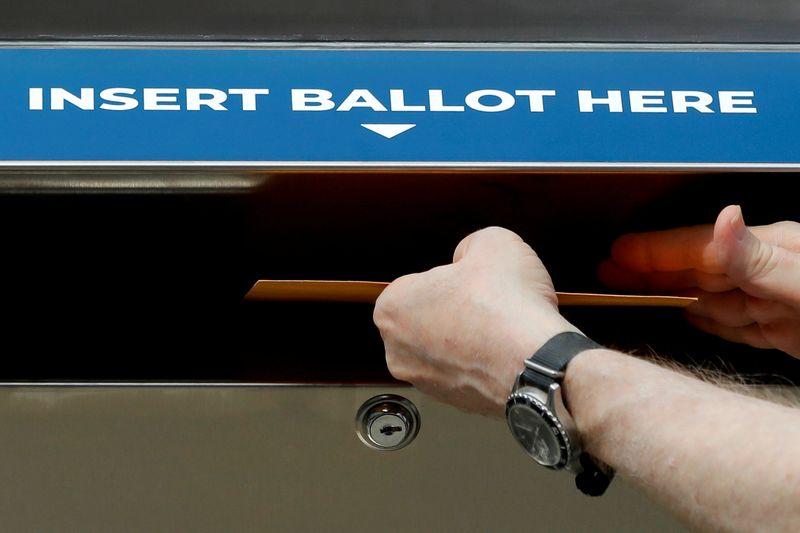By David Shepardson
WASHINGTON (Reuters) - The U.S. Postal Service (USPS) told a U.S. judge on Friday it has returned 137 mail processing machines to service since August and approved thousands of daily extra delivery trips this month as it works to deliver millions of ballots.
U.S. District Judge Emmett Sullivan had ordered the return of mail sorting machines if removals could impact timely ballot deliveries ahead of the Nov. 3 presidential election.
The Postal Service said since Aug. 18, 137 mail processing machines have been returned to service and it has not removed any additional machines from service.
Lawmakers and others heavily criticized Postmaster General Louis DeJoy, a Trump donor who took over in June, for cost-cutting organizational changes adopted in July including eliminating extra and late mail deliveries that critics said caused delays in deliveries.
In August, DeJoy agreed to suspend changes through Election Day.
Four U.S. judges, including Sullivan, have issued preliminary injunctions barring USPS from making service reductions before the vote. Sullivan prohibited USPS from barring late or extra trips.
USPS told Sullivan on Friday it told all employees last week that late and extra trips "should be used when they would facilitate the expeditious delivery of Election Mail."
It said it had about 2,000 average daily late and extra trips through mid-October, including 2,178 late trips and 740 extra trips on Thursday.
On Thursday, USPS said it had delivered more than 100 million blank or completed ballots since early September.
In total, 523 million pieces of election mail have entered the USPS network, up 162% over the 2016 election.
Starting on Monday, supervisors are "instructed to use extraordinary measures" to accelerate ballot deliveries, USPS said. The postal service is delivering ballots "with or without sufficient postage" and extending retail hours at some Post Offices through Election Day.

A record number of voters are casting ballots by mail instead of in person because of the coronavirus pandemic, but President Donald Trump has repeatedly said, without providing evidence, that mail voting would lead to widespread fraud.